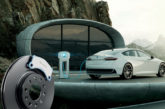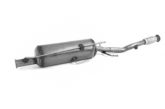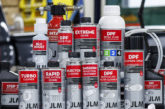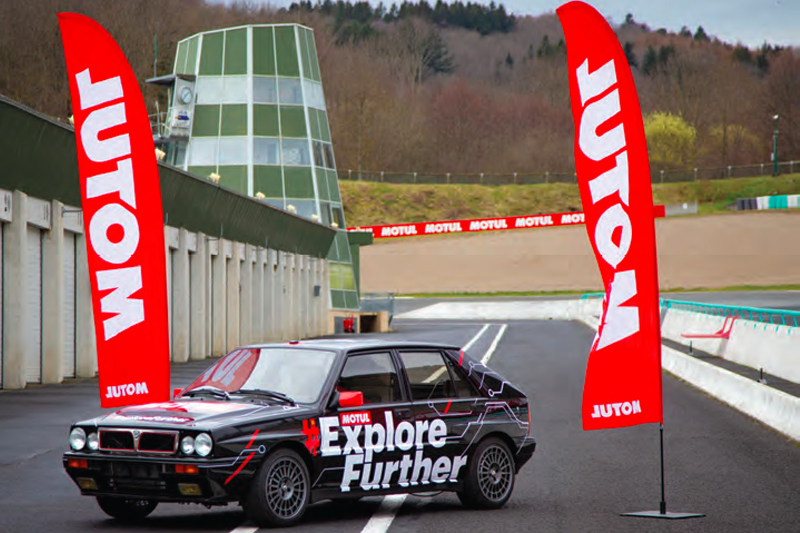
Motul has been what marketers call “a great innovator” in the past, so let’s take a look at what they’re doing today and maybe it will give us some insight into how the future of automotive lubrication looks.
Motul has, since its earliest days – long before the automobile was even conceived – been at the forefront of the market. In the 1950s, Motul really made the first major leap forward in automotive lubricants with the introduction of multigrade motor oil. Prior to this, people had to change lubricants in summer and winter. This new wonder product could be used all year round, in a broad range of temperatures, thereby reducing lubricant consumption and maintenance.
Motul had a motorsport heritage – using it as a vital part of the testing and development process of its new products. Success in motorsport, however, requires constant development and in 1966 Motul launched Century 2100 – the first semi-synthetic car lubricant – a product that withstood constraints and mechanical loads ten-times higher than the previous-generation mineral oil lubricants.
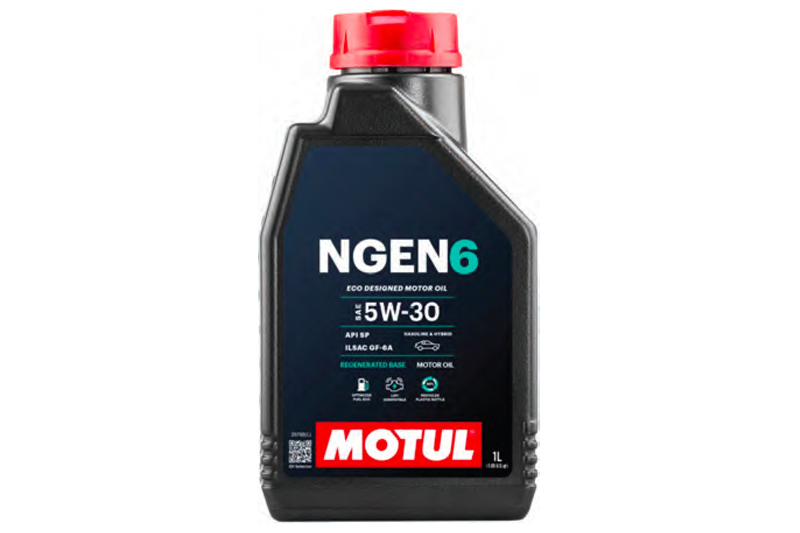
Five years later, in 1971, Motul launched the first fully synthetic motor oil – Motul 300V – using vegetal-derived Ester technology that had been developed for the aircraft industry. The name refers to the 300 race victories that Motul cars had achieved.
The present day
Last year Motul launched its latest range – NGEN – which it firmly believes is the formula for the lubricant for the future. Motul looked at the market holistically and at the issues and trends in the industry. It observed that OEMs across the board have prioritised preservation of the environment and community social responsibility, and are heavily communicating their desire and determination to improve their environmental impact.
In line with this and, given the large numbers of ICE vehicles that will be on our roads for many years to come, Motul decided to pioneer a sustainable oil range in every key aspect, but, vitally, it has developed lubricants that do not sacrifice performance in any respect to achieve this sustainability. In fact it is quite the opposite, as NGEN oils actually feature enhanced aspects of performance over their traditional counterparts.
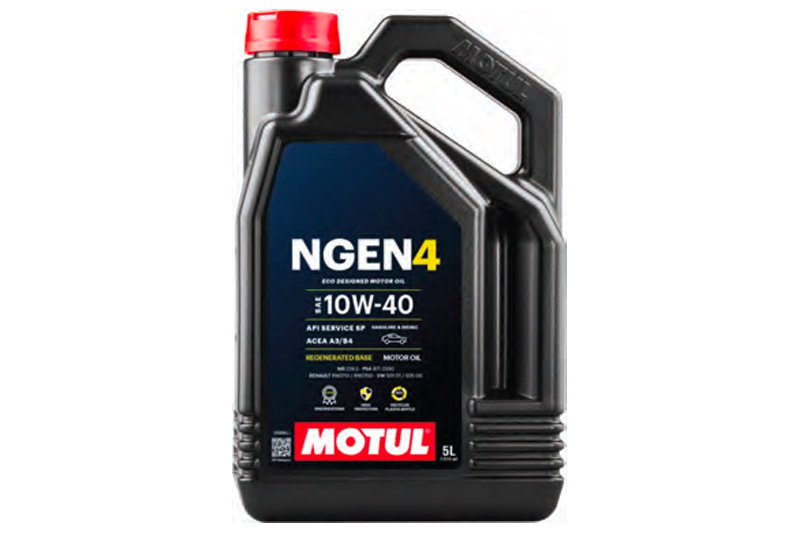
Motul NGEN offers the opportunity for the individual to make a positive difference in sustainability when it comes to lubricating their vehicle, sure in the knowledge that this new range of lubricants will give them everything they need in terms of performance.
The range launched with two motorcycle oils, NGEN 5 and 7 (which are designed to be used as an alternative to its very popular 5100 and 7100 series oils) and NGEN Hybrid, which is specifically designed for vehicles that use hybrid technology. This year, it moves into the wider car market with the impending launch of NGEN 4 and 6.
The new oils are compatible with a huge variety of vehicles, including those that would normally use Motul’s 4100 and 6100 ranges. In more specific terms, NGEN 6 is a dedicated fuel economy formula, designed for recent vehicles powered by petrol and hybrid engines, suitable for applications requesting the latest API SP standard – although it is also backwards compatible to cover all API specifications for the last 25+ years – and ILSAC GF-6A.
NGEN 4 is a dedicated formula, specifically designed for mid-aged vehicles powered by all fuel types. The formulation complies with ACEA A3/B4, API SP – again with retro-compatibility – and multiple OEM approvals.
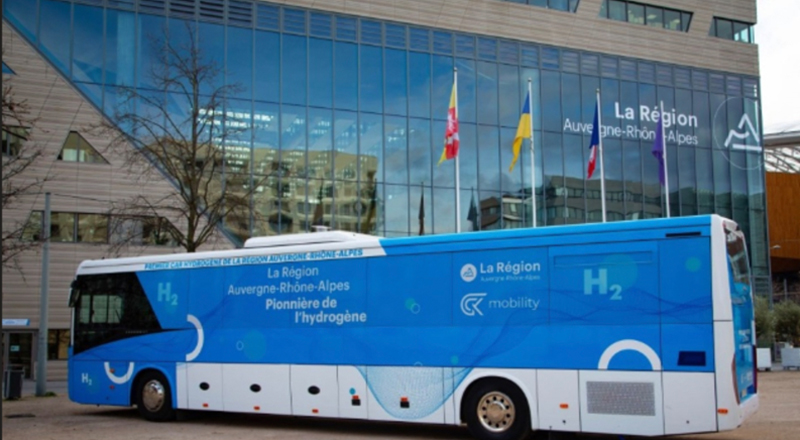
Looking ahead
The likely reduction of ICE vehicles and the attendant growth of EVs (alongside, potentially, other alternative types of fuel, will present a whole new automotive landscape in which a plethora of opportunities will present themselves. The team at Motul are already looking towards a fluid future that exists outside of conventionally powered vehicles and has forged a strategic partnership with Green Corp Konnection, a pioneer in carbon-free mobility solutions.
Together, they are working on enhancing battery performance and harnessing the power of hydrogen combustion. These advancements are expected to reshape the future of mobility, making it more ecofriendly and efficient. The partnership has already yielded some impressive results, both in terms of enhancing EV technology and with hydrogen power.
On the electric power front, Motul and CGK have been working on immersion battery cooling using a dielectric fluid. This technology is at the forefront for battery electric vehicles and, until now, has typically been employed to cool supercomputers that generate enormous amounts of heat. In this case the fluid is in direct contact with the battery cells, enabling better thermal management during charge and discharge cycles, as well as an improvement in the overall performance and safety of the battery and a much faster charging time.
Motul has demonstrated the efficacy of the dielectric fluid on several high-profile concept vehicles including its own electric Lancia Delta Integrale.
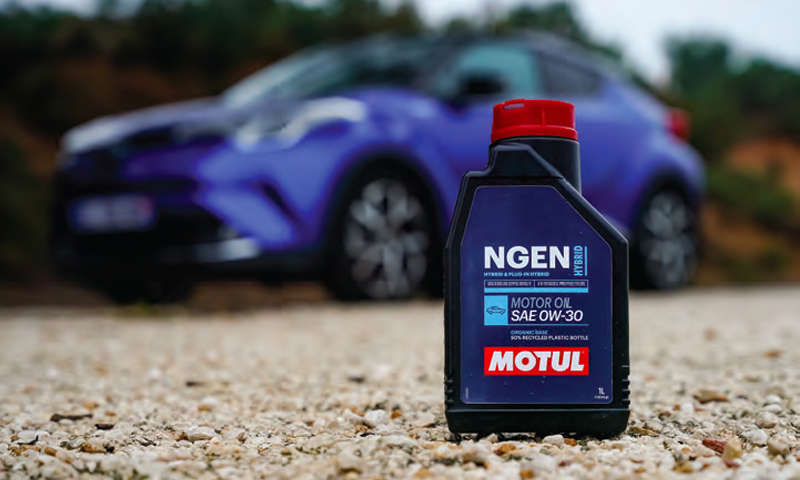
Hydrogen is also coming more and more into the reckoning as a viable alternative sustainable vehicle fuel source. Here Motul has again been working with GCK and the first visible results come in a project to convert diesel buses to hydrogen in the Auvergne-Rhône-Alpes region of France.
“Overall, we are looking at what we think will be a golden period for downstream specialist lubricant companies, such as ours, in the coming few years,” explains Motul UK sales and marketing manager, Andy Wait. “However, we also see ourselves more and more as a fluid technology company, with a constantly strengthening sustainable outlook through exploring new opportunities in both traditional lubricants and alternative-fuel vehicle-related fluids. There are exciting times ahead…”




